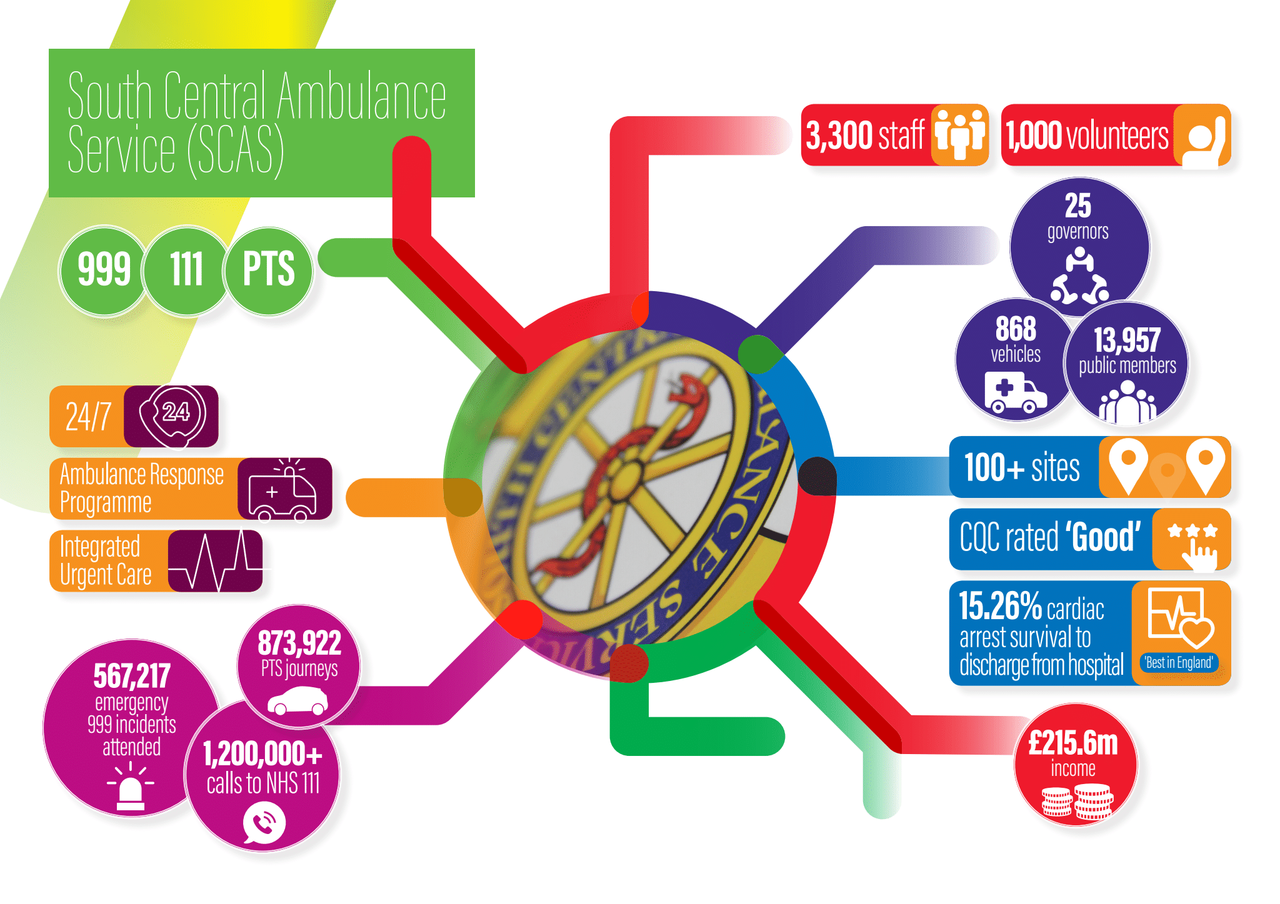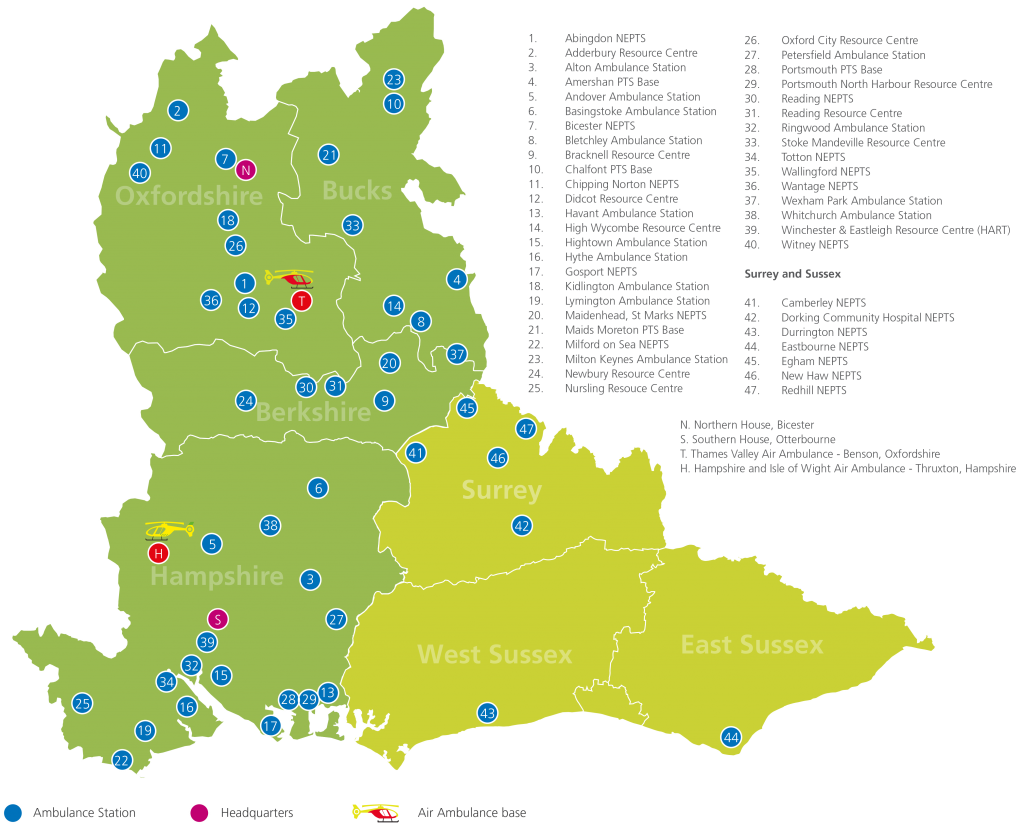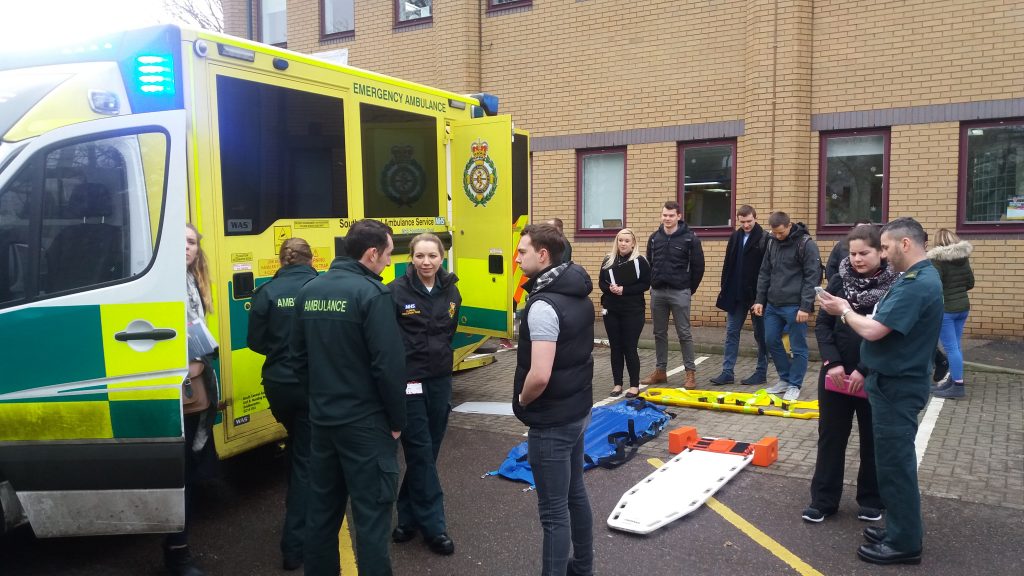Here are the stories of our young staff members together with a section on working with us, plus application form and interview tips and much more.
About SCAS
SCAS in numbers

SCAS locations

Working at SCAS
The following sections are intended as a guide for students to getting ready to step into the world of work.
Working with the NHS is rewarding in several special ways:
- you’ll be part of a unique organisation whose whole purpose is to improve people’s health and provide treatment and care for those who need it
- whatever job you’re doing you will be helping make a difference to people’s lives
- through training, mentoring and other support you will be encouraged to develop your full potential at work
- you’ll enjoy excellent benefits in terms of paid holidays and an excellent pension scheme
For some, but not all jobs at SCAS you will have to complete a course at university or college to equip you with the knowledge and skills you’ll need. Whether you’re planning to apply for a place on a course or for an actual job the following segments give you some very useful tips about what SCAS (and universities or colleges) usually look for in applications.
Find out more at www.scasjobs.co.uk.
Get experience
Your job application
If you apply for a job with us you will need to complete an online application via the NHS Jobs website.
Because you may have little, if any, experience of working other than at school, make sure your application includes everything that demonstrates your ability to be part of a team and take responsibility for yourself and others. For example, include:
- any voluntary work you’ve done
- projects such as Duke of Edinburgh awards
- any work experience that shows your ability to be trustworthy and punctual
- mention of any babysitting or other caring that you’ve done
- any experience helping with older or ill people, family or neighbours
- participation in team games
- anything you have done to help younger students in your school
- being a foundation trust member of our Trust
It is also vital that you think hard about why you are keen to follow a particular career and be creative in making the link between this and your own life experience so far.
Application forms
- follow the instructions carefully
- provide all the information the questions ask for
- work with the space available for each section and don’t miss any sections out
- most forms will give you the opportunity to say something about yourself and why you’re applying the thinking you’ve done for your CV will help you with this section
- make a practice copy first that you’re happy with before you complete the actual application form
Interviews
- check out in advance where the interview will be held, work out how to get there, and arrive with plenty of time to spare. Remember that universities can be large and busy places: you need to know exactly where you need to be for your interview
- remember the interview panel are on your side. You have been invited to the interview because they liked your application form and want to know more about you
- listen carefully to the questions they ask, and answer them as clearly as you can
- don’t rush. Think about your answers. If there’s something in the question that you don’t understand, ask for clarification
- take the chance to ask any questions that you have for them.
Watch our videos giving some great interview tips at https://youtu.be/Ob_XL2d4vUo and at https://youtu.be/NkVFoBPcgO8
Applying to higher education
With regard to paramedic science, we work in partnership with Oxford Brookes and Portsmouth universities. For more info go to https://www.brookes.ac.uk/courses/undergraduate/paramedic-science/ and https://www.port.ac.uk/study/courses/bsc-hons-paramedic-science.






